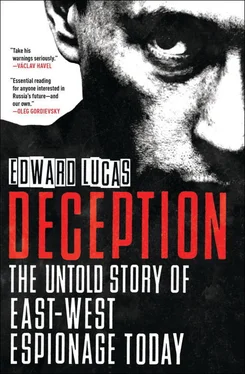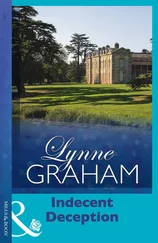Gullibility towards Russia and snootiness towards allies are two of the problems I have highlighted. A third is that the Western mindset tends to try to fit Russia’s activities abroad into mistakenly neat pigeonholes. More than ten years ago James Woolsey, a former CIA director, characterised the problem thus:
If you should chance to strike up a conversation with an articulate, English-speaking Russian… wearing a $3,000 suit and a pair of Gucci loafers, and he tells you that he is an executive of a Russian trading company… then there are four possibilities. He may be what he says he is. He may be a Russian intelligence officer working under commercial cover. He may be part of a Russian organised crime group. But the really interesting possibility is that he may be all three and that none of those three institutions have any problem with the arrangement. 2
Since 1999, the Russian intelligence threat has morphed further, posing a daunting task for Western spycatchers. The adversary is a shape-shifter: in one manifestation it is a legitimate energy company, then a curious student apparently from a NATO country, then a pushy official from the Russian embassy, then a supposedly independent charitable outfit offering a large donation to anyone who conducts the right research, then a hard-working secretary, then a Portuguese business consultant. For Russia the ‘natural capacity’ of which the CIA can only dream is already in place. It exists not only in Russian business abroad, but via foreign businesses with investments or offices in Russia. The people they take on as local employees and then send on foreign postings may be loyal workers for the company, or they may have been assigned to it by the authorities, perhaps for nepotistic reasons, perhaps with clandestine work in mind, perhaps for both. If that fails, the Russian diaspora provides a rich fishing ground for whatever catch is needed.
Russian misbehaviour abroad can seem a problem solely for the criminal justice authorities: they deal with gangsters, forgers, people-traffickers, cyber-crime and assassins. Blink and the problem seems instead one for the authorities that supervise the financial system, and have to deal with Russia’s many strange business-like entities. Alert to every loophole, these are moving vast quantities of murkily obtained cash into the respectable world’s banks and stock exchanges. Curbing that could prevent the people who swindled the Russian taxpayer and murdered Mr Magnitsky from enjoying their loot. Then again, the Russia files seem destined for the visa authorities: it is their job to cordon off our societies from ill-wishers and malefactors. Sometimes the regime in Moscow seems like a matter for diplomats, who with luck and skill may coax it into cooperative relationships with its neighbours, and defuse the misunderstandings of the past.
The grave weakness of the Western approach is that it regards spy-catching, criminal justice, financial supervision, lobbying disclosure and media-ownership rules as quite separate areas of decision-making. Yet given the multi-faceted threat they face, the agencies involved in these fields need to work in concert, not separately. It is troubling that the British and Irish authorities have not, for example, followed up the case of Steven Sugden. Because no money seems to have been stolen, it is below the radar of the police. From the spy-catchers’ point of view, it is a ‘cold case’. They are too busy stopping things that may be going to happen to worry about events that took place a few years back. Moreover, even if techniques of Russian spycraft were used, the aim falls outside their remit. MI5 catches spies, not criminals. Yet finding out if, how and why an imposter purloined the real Mr Sugden’s signature, and what really happened with the addresses in Rossmore Grove, deserves proper investigation. The culprits are still at large; they and their accomplices are unpunished. The loopholes are still open. Someone may try the same trick again. If your own name, your address, your signature and your date of birth were used in such a manner, it would be of little comfort to know that the case fell between the cracks of a bureaucracy designed for another age.
A guiding principle in the West’s dealings with Russia should be to listen to those people there who share our values, and to sustain and encourage them rather than demoralising them. In February 2011 the four leaders of the main opposition party, the Party of People’s Freedom, wrote a sharply worded newspaper article, berating the Western countries for their role in facilitating the misrule and looting of Russia.
We urge Western leaders to discontinue their kisses-and-hugs ‘Realpolitik’, which has failed, and to stop flirting with Russian rulers – behaviour that has not brought any benefits to the West and produces in Russia an impression that Putin’s system is a decent one, like any other in the democratic world.
It means the West should cease greeting Russian rulers as equals, providing them with legitimacy they clearly do not merit. It means the West should start exposing corrupt practices by the Russian establishment, whose ability to find havens for stolen funds and leave Russia for comfortable lives in Western nations is one of the regime’s pillars of stability. It means Western nations should introduce targeted sanctions against the officials directly abusing the rights of their compatriots. 3
Sanctions of this kind do not mean isolating Russia as a whole, which would indeed be futile and counterproductive. But it is worth stating bluntly that the current approach, of engagement without willpower, is certain to make matters worse, not better. The West hardly realises that it is dealing with an adversary that understands us better than we know ourselves, whose goals and methods are mysteries to us, and whom we barely recognise when we see him. He is determined; we are divided. He is resentful and paranoid; we are complacent and trusting. We want to like him. We hope he will like us, and eventually be like us. He wants nothing of the kind. As Don Jensen points out: ‘Those who keep calling for an engagement that will eventually transform Russia cannot see that it is the West, not Russia, that is being transformed.’ 4I hope this book can help the West to avoid that fate.
Meelis Saueauk of Estonia’s Institute for Historical Memory kindly helped me find KGB documents about Operation Jungle from Estonian and Latvian archives. Ivo Juurvee also provided important examples of Soviet-era propaganda. Ritvars Jansons at the Occupation Museum in Riga generously shared his insights. Māra Grīnberga helped me find her article about the remarkable Mr Pīnups. Prokop Tomek in Prague shared his research on Miloslav Kroča and his daughter. Tom Bower effortlessly unearthed his twenty-year-old notebooks and lent me his unique copy of the film Red Web . Tina Tamman helped me track down Alexander Koppel, whose daughter Catherine and son-in-law Michael Breslin provided kind hospitality. Juho and Janno Kiik readily shared their memories of Voldemar. Ben Judah provided excellent research on Anna Chapman’s life in Russia. Sam Donaldson in Dublin investigated the mysteries of Rossmore Grove. I am grateful to all of them, and to the people I have quoted. Bill Swainson at Bloomsbury deftly untangled the book’s structure and helped me signpost it for a wider audience. Zoe Waldie at Rogers, Coleridge and Wright calmed my jitters.
My children Johnny, Hugo and Izzy uncomplainingly put up with my physical and mental absences. My wife Cristina Odone’s critique was invaluable, as were her love and patience from beginning to end. In 1970s Oxford, my father J.R. Lucas’s thoughts on espionage and communism inspired this book; it is dedicated to him and my mother Morar, who have been my unfailing support for fifty years. I am grateful to my editors at the Economist for giving me a sabbatical, and to my colleagues, particularly Ludwig Siegele, John Peet, Tom Nuttall and Bruce Clark, for uncomplainingly covering for my absences. However, the views, and mistakes, in this book are mine alone.
Читать дальше












